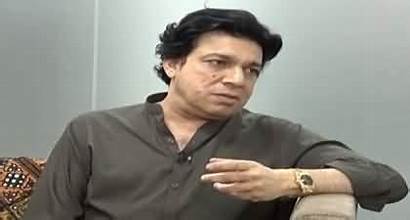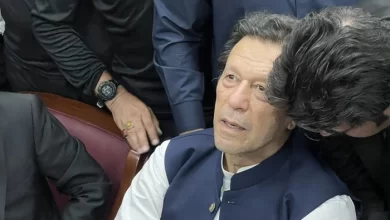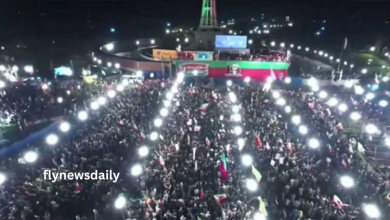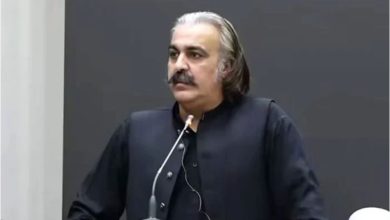
Introduction
In a surprising turn of events, Faisal Vawda, a prominent figure in Pakistan’s political landscape, recently stated that Imran Khan’s detention is “better for everyone.” This comment has sparked heated debates across the country, stirring political, social, and media circles alike. Imran Khan, the former Prime Minister and chairman of Pakistan Tehreek-e-Insaf (PTI), has been a polarizing figure whose rise and fall have defined Pakistan’s modern political narrative.
Imran Khan’s Detention
Timeline of Events Leading to Detention
Imran Khan’s detention was the culmination of a series of legal and political challenges. His tenure as Prime Minister, marked by both praise and criticism, ended abruptly after a no-confidence vote. Following his ouster, he faced numerous allegations ranging from corruption to undermining national institutions.
Key Charges and Legal Proceedings
The charges against Khan include alleged financial misconduct, misuse of authority, and contempt of judicial processes. These allegations have resulted in multiple court cases, some of which have led to his temporary incarceration. Critics argue that these charges are politically motivated, while proponents view them as a necessary step towards accountability.
Faisal Vawda’s Perspective
Background of Faisal Vawda
A former federal minister and an outspoken political commentator, Faisal Vawda has never shied away from controversial statements. Known for his candid demeanor, Vawda’s latest remark about Khan’s detention has added another layer of complexity to Pakistan’s political discourse.
Analysis of His Statement
Vawda’s assertion that Khan’s detention suits everyone could be interpreted in several ways. On one hand, it highlights the divisive nature of Khan’s leadership, suggesting that his absence might ease political tensions. On the other, it raises questions about the motivations behind such a statement.
Political Implications
Impact on PTI
Imran Khan’s detention has significantly affected PTI’s operational dynamics. Internal divisions have surfaced, with some leaders advocating for a more conciliatory approach while others demand aggressive resistance.
Reaction from Other Political Parties
Rival political parties have seized the opportunity to consolidate their positions. Many have criticized Khan’s leadership style while simultaneously leveraging his detention to further their agendas.
Public Opinion
Perception Among Khan’s Supporters
For many of Khan’s ardent supporters, his detention is viewed as a blatant injustice. Protests and demonstrations have erupted across the country, reflecting their unwavering loyalty.
General Public Sentiment
The general public, however, remains divided. While some empathize with Khan’s plight, others believe his actions warranted legal consequences.
Media Representation
Coverage by Local and International Media
The media’s portrayal of Imran Khan’s detention has been a mix of criticism and support. Local outlets have been more polarized, whereas international coverage has often emphasized the broader implications for Pakistan’s democracy.
Narrative Shaping and Biases
Media narratives often reflect underlying political biases. The framing of Khan’s detention varies significantly, shaping public perception in diverse ways.
Economic Consequences
Effects on Pakistan’s Economy
Political instability, exacerbated by Khan’s detention, has deterred foreign investments and strained Pakistan’s already fragile economy.
Investor Confidence and Stability
The uncertainty surrounding Khan’s legal battles has raised concerns among investors, further undermining economic stability.
Judiciary’s Role
Examination of the Judicial Process
The judiciary’s handling of Khan’s cases has drawn both praise and criticism. Questions about judicial impartiality have fueled public debates.
Questions of Fairness and Impartiality
Concerns about selective accountability have underscored the need for comprehensive judicial reforms.
Regional Dynamics
Impacts on Relations with Neighboring Countries
Khan’s detention has reverberated beyond Pakistan’s borders, influencing its relations with key neighbors like India and Afghanistan.
Role of External Influences in Politics
External actors often play a significant role in shaping Pakistan’s political landscape, and Khan’s situation is no exception.
Historical Parallels
Comparisons to Similar Incidents
Political detentions are not new in Pakistan. Historical parallels, such as those involving Zulfikar Ali Bhutto and Nawaz Sharif, provide valuable insights.
Lessons Learned from Past Detentions
Past incidents highlight the importance of upholding democratic values and ensuring transparent legal processes.
Future Scenarios
Possible Outcomes for Imran Khan
The future of Imran Khan’s political career remains uncertain. Possible scenarios range from his exoneration to prolonged political exile.
Broader Implications for Democracy
Khan’s detention underscores the fragility of democratic institutions in Pakistan. Strengthening these institutions is crucial for the country’s stability.
Conclusion
Imran Khan’s detention, coupled with Faisal Vawda’s controversial statement, has triggered significant political and social repercussions in Pakistan. The situation serves as a stark reminder of the challenges facing the country’s democratic institutions and the need for collective efforts to ensure stability and justice.



